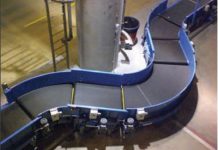
Germany-based Bosch, which has its North American headquarters in Farmington Hills, says it plans capital investments of $360 million in North America this year, $250 million of which will be in the mobility sector.
At its Charleston, S.C. facility, as one example, Bosch is ramping up production to support powertrain electrification as part of the company’s investment and growth in the area of electromobility. At the same time, the facility also is experiencing growth in its support of the internal combustion engine.
Bosch continues to offer its customers technologically neutral options for the powertrain with a focus on increasing efficiency and reducing emissions. The Charleston facility expects to invest $80 million by 2023 to support these areas.
In North America, Bosch is extending the company’s global focus on AIoT, where artificial intelligence (AI) meets the internet of things (IoT), via AIoT solutions and projects originating in the region.
“We are one of the winners in the transition to electromobility, and we are significantly expanding our software business by tying in artificial intelligence,” says Volkmar Denner, chairman of the board of management of Robert Bosch GmbH. “Global efforts to combat climate change are boosting electrification and green hydrogen. Electrification offers Bosch new opportunities in several business areas, since it requires solutions not only for electric driving in cars, but also for electric heating in buildings.
“In powertrain technology, electromobility is establishing itself as Bosch’s core business,” Denner continues. “Fuel cells convert hydrogen into electricity, and Bosch is developing both stationary and mobile fuel-cell solutions. From 2021 to 2024, Bosch plans to invest $1.2 billion in fuel-cell technology.”
The investment by Bosch was announced as it reported $12.03 billion in consolidated North American sales, 15 percent below the previous year’s results, due to the COVID-19 pandemic.
“The COVID-19 pandemic had a substantial impact on our business, particularly in the second quarter of 2020,” says Mike Mansuetti, president of Bosch in North America. “Our associates responded with great poise, agility, and creativity to help us meet the significant challenges we faced. As a result, we were able to rebound successfully in the second half of the year.”
The company credits its diversification for its ability to weather the COVID storm. Demand for household appliances and power tools increased significantly, boosting sales in North America’s consumer goods business sector to $2.9 billion, a 12 percent increase.
“For the current year, we are optimistic about building upon the results of the second half of 2020 and the start of 2021, but also expect on-going challenges due to industry-wide headwinds such as the semiconductor shortage,” says Mansuetti.
Bosch says it is pressing ahead with its climate action targets as planned, and has reached a major milestone with the climate-neutral status of its more than 400 locations worldwide in spring 2020.
As a result, Bosch is the first global industrial company whose own locations no longer leave a carbon footprint. This includes the sites in North America. Many of the company ́s activities across North America have contributed to achieving this goal, with energy efficiency as a primary lever. For example, the Charleston facility is one of more than 100 Bosch locations worldwide that have deployed the Bosch cloud-based-energy platform, which applies intelligent algorithms to reduce the energy consumption of machines and thus increases the efficiency of production processes.
Another example is Bosch Rexroth’s facility in Fountain Inn, S.C., which requires a large amount of electricity for its mobile hydraulics production. It now has the first large-scale solar array for the company in North America. In November 2020, the plant started producing energy from 3,300 solar panels spread out over five acres of adjacent land. The energy produced feeds directly into the plant and can provide roughly 25 percent of the power for one of the campus buildings.
Bosch also aims to reduce CO2 emissions along its entire value chain, from suppliers to customers, by 15 percent by 2030 from their 2018 level — a reduction of 67 million metric tons of carbon dioxide emissions.











